First Quarterly Report on the Human Rights Situation in Libya (July- September 2020)
First Quarterly Report on the Human Rights Situation in Libya
(July- September 2020)
Defender Center 30/10/
Preface
During the period from July to September 2020, Libya did not witness any positive developments in terms of respecting and reinforcing human rights, whether in the east or in the west of the country. On the contrary, the suffering of Libyans from human rights violations remained a major feature, added to the denial of basic services. This led to the outbreak of several peaceful protests in some Libyan cities during the months of August and September despite the outbreak of the Covid-19 pandemic. The authorities used excessive force to suppress the protests, which resulted in the killing of two protesters, while dozens were subjected to arbitrary detention. Furthermore, a number of activists and journalists were kidnapped during the suppression of the protests. The period covered by the present report also coincided with the memory of the kidnapping and assassination of some human rights defenders without pursuit of the perpetrators in a country where impunity was rampant. While atrocities are still being committed against refugees and migrants, detention places in Libya have become a time bomb as the pandemic spreads in a country suffering from a collapsing health system and a shortage in medical supplies.
As the human rights situation continues to deteriorate, the two parties to the Libyan conflict have held, during the past weeks, a number of joint meetings in some Arab and European cities, which some observers saw as a positive step towards achieving peace and stability. At the same time when representatives of the de facto authorities were negotiating in Egypt and Morocco, those same authorities were continuing to exert pressure on human rights defenders, placing more arbitrary restrictions on their peaceful activities and seeking to isolate them from the outside world. This is as the fact-finding mission established by the United Nations Human Rights Council announced the launching of its work under various challenges.
Excessive Use of Force in the Face of Peaceful Protest
Last July witnessed an escalation in calls for peaceful demonstrations in order to demand the provision of basic services and to protest against rampant corruption. A demonstration was called on Friday, August 23th to be met with a widespread response from Libyan citizens in the West and in the East. The authorities in Benghazi took a pre-emptive move to prevent citizens from gathering peacefully in Al-Kish Square and arrested activists for calling for demonstrations. The Benghazi authorities equally launched a smear campaign against the organizers of the protests, using both traditional media and social media. In Sirte, protesters were able to take to the streets on August 23th, but security forces used excessive force, which led to the death of one protester and the injury of 7 others, while tens of citizens were arrested. The authorities in Sirte also cut communication and internet services during the period from August 25th to September 3rd in an attempt to impede the organizers of the demonstrations from mobilizing citizens.
In Tripoli, the demonstrators managed to rally on August 23rd, despite the authorities inciting against those calling for protests on social media, refusing to issue authorizations for the demonstrations, and imposing a curfew. Authorities and allied armed groups used excessive force to suppress protesters. As a result, a demonstrator was killed and others were injured, in addition to the exposure of a number of demonstrators and protest organizers to arbitrary arrest and enforced disappearance. 21 detainees were brought before the Public Prosecutor’s office in Tripoli, 13 of them were released after they were charged with protesting without authorization, and 8 people were held in pretrial detention for several days before they were released, including 7 of the organizers of the demonstrations on charges of demonstrating without authorization, in addition to an Egyptian man who was charged with infiltrating and residing in Libya without an authorization. The case has neither been referred to the court nor dismissed so far. The Defender Center for Human Rights issued a position paper on the reaction of the authorities in western and eastern Libya to the peaceful protests last August.
Within the framework of the Libyans’ insistence on not conceding their dignity, justice and basic rights, the city of Al-Marj witnessed on September 12th peaceful demonstrations, protesting against poor living conditions, the lack of services and the spread of corruption. There were reports about the authorities using excessive force to suppress demonstrations. As a result, a demonstrator was killed and others were injured.
Calls for demonstrations were renewed in Benghazi under the slogan (saving Libya from corruption and the corrupt). On September 21st, demonstrators gathered to demand the end of rampant corruption, the protection of freedom of expression, the guarantee of the civil State and the rule of law, as well as the holding of early elections. But in a technique inspired by other Arab countries to confront peaceful opposition gatherings, others gathered in a counter-demonstration and carried banners in support of Field Marshal Khalifa Haftar, harassing the opposition demonstrators, which led to altercations between the two groups. This was a favorable opportunity for the security forces to demand that the demonstrators end the demonstration in order to ensure their safety, and indeed the demonstrators left the place ahead of the previously scheduled time to end their gathering. In the aftermath, however, security forces kidnapped one of the protest organizers who was released on the morning of September 24th.
Isolating civil society from the outside world
Civil society organizations in Libya are suffering from arbitrary legal restrictions that contradict international standards for freedom of association. This is while human rights defenders are also targeted with campaigns of intimidation, hate, enforced disappearances, imprisonment and torture, which forces some of them to remain silent, fearing for their life and safety, while others take the risk of continuing their activities in defense of human rights in an environment fraught with danger, an environment hostile to human rights. In the beginning of this year, the Defender Center issued a report that monitors and analyzes the restrictions imposed on civil society and human rights defenders in Libya, whether at the level of legislation or practice.
However, some officials seem to believe that these restrictions already imposed are not sufficient to deter civil society organizations from performing their role. So they decided to add more to it, and the goal this time is: to isolate the Libyan civil society from civil society organizations around the world, and to cut off channels of communication between human rights defenders inside Libya and their Libyan partners and supporters abroad and others.
During the few past weeks, the Defender Center received information from some Libyan organizations that the Civil Society Commission in Tripoli, affiliated with the Government of National Accord, had added a new document to the documents related to the procedures for registering associations and renewing licenses. The founders of organizations are forced to sign a paper pledging to “abstain from dealing with foreign embassies and consulates at home and abroad and with international governmental and non-governmental organizations in all forms of interaction, whether by holding meetings, by inviting them, or by answering their invitations and calls , or by signing any agreements, treaties or contracts in general […] except after referring to and requesting permission and approval from the Civil Society Commission as well as from the relevant authorities in accordance with Libyan legislation and laws.
The philosophy behind such a policy is to deal with civil society organizations as a hostage and to consider them as institutions affiliated with the government, which contradicts the core idea of civil society. These coercive restrictions on networking with regional and international organizations will lead to preventing the newly formed Libyan civil society from acquiring more of the skills and expertise it needs to develop its performance and to build its capabilities. It will also weaken international advocacy efforts that depend on testimonies provided by Libyan human rights organizations to the United Nations human rights protection mechanisms, and even to the fact-finding mission that the Human Rights Council recently established. The international community, and the governments that recognize the Government of National Accord, must communicate with the Libyan authorities in Tripoli to cancel this decision and persuade them of the need for a serious dialogue with Libyan civil society organizations with the aim to remove other obstacles that hinder civil society from performing its role. It may also be appropriate for the United Nations Support Mission in Libya to facilitate such a dialogue in its endeavors to promote human rights in the country.
Journalism is a crime in Libya
Libya is ranked 164th in the World Press Freedom Index issued by Reporters Without Borders for the year 2020. In light of the civil strife in Libya, independent journalists pay a heavy price, risking their lives and safety while performing their work. The Libyan authorities also charge them with terrorism-related crimes and send them to trial before the military courts, as happened recently to a photojournalist in Benghazi.
Last August, the family and the lawyer of the Libyan photojournalist and activist Ismail Bouzariba Zawi learned that in May 2020 the Benghazi Military Court had issued against him a 15-year prison sentence. Mr. Zawi was arrested in December 2018 in the city of Ajdabiya before he was arbitrarily detained in a military prison in Benghazi. This happened after searching his mobile phone and finding text messages and blogs that included criticism of the Libyan Army General Command in the East and of the Military ‘Karama’ Operation. The authorities accused Zawi of supporting terrorism and communicating with satellite channels accused of supporting terrorism by the General Command authorities in eastern Libya. During his detention, Zawi was not able to contact his family or meet his lawyer, while the latter was not informed of the date of the court session, which raises suspicions about the level of compliance with the law and with the international standards for fair trial.
The search of phones, mobile computers and tablets in the possession of citizens has been a widespread phenomenon in Libya for nearly 8 years. The various authorities in the East and the West are systematically violating the right to privacy. Several months ago, 28 Libyan human rights organizations, including the Defender Center, announced the detection of 21 cases of such abuse between 2019 and 2020. The list of victims of this practice includes human rights defenders, media professionals, bloggers and migrants in different cities. This practice aims to intimidate citizens so that they refrain from expressing their views on social media or even engaging in discussions with others about human rights and the political situation. In the event that the authorities discover electronic content that opposes their policies, as in the above-mentioned case Mr. Zawi, consequences are high.
Moreover, armed groups supporting the authorities in Tripoli, during their participation in the suppression of popular protests on August 23rd, kidnapped a journalist who was covering the demonstrations before he appeared in the office of the Public Prosecutor who was charged him with protesting without an authorization, to be released on September 2nd with 12 others. The Defender Center has also documented the testimony of another journalist who was kidnapped and tortured by one of the armed groups in Libya, and the center keeps names and information related to that incident for itself at the request of the journalist who fears reprisals.
In light of the systematic suppression of freedom of opinion and of expression in Libya, bloggers and persons with dissenting political opinions are targeted. They are subjected to kidnapping and enforced disappearance or accused of supporting terrorism. For example, the Domestic Security Department in Benghazi arrested a blogger on September 12th, 2020 who was investigated on charges related to incitement to demonstrations. The repression is not limited to journalists and bloggers who publish political content opposing the authorities, but extends its scope to artists who deal in their works with political situations in a way that does not please the authorities and the armed groups loyal to them. On July 18th, 2020, a rapper was kidnapped in front of his home in Tripoli. This happened weeks after he released a song criticizing the armed groups, and no party has claimed responsibility for his kidnapping. The sources of the Defender Center in Tripoli were able to find out that the Nawasi Brigade is responsible for the kidnapping of the young singer who was denied the right to seek legal assistance or receive visits from his family.
Detention Places being susceptible to the spread of the Covid-19 Pandemic
Libyan prisons suffer from miserable conditions as cells are overcrowded with detainees in the absence of the minimum necessary health care, proper nutrition, clean water and cleaning materials, as well as the absence of the ventilation required to maintain the health of inmates and to reduce the chances of infection. These conditions herald a further deterioration of the conditions of detainees in Libya in the light of the spread of the Covid-19 pandemic in the country. According to the figures announced by the Libyan Platform Coalition last June, Libyan prisons contain more than 8,000 prisoners of different nationalities, and about 3,000 migrants and refugees are subject to detention, all of whom are subjected to various forms of ill-treatment and torture, and are stacked in cells that represent an environment that is conducive to the spread of infectious diseases.
At the beginning of the crisis, the authorities took a positive decision based on the recommendations of the Supreme Judicial Council, by releasing some prisoners from prisons under the Ministry of Justice. 350 prisoners were released in the eastern region and 1,300 prisoners in the western region. However, authorities did not adopt the policy of reducing the number of prisoners which should be by implementing plans for early, conditional or temporary release of criminals who do not pose a real danger, reviewing the status of preventive detention prisoners, reviewing and limiting the detention of migrants, and closing refugee camps. These are all recommendations issued by the United Nations Subcommittee on Prevention of Torture regarding measures that governments and independent monitoring bodies should take to protect people deprived of their liberty in the light of the outbreak of the pandemic.
According to statistics issued by the United Nations in mid-October, the number of cases of Covid-19 in Libya reached about 45,000 in addition to 656 deaths, which raises concerns about the conditions of detainees, especially in the light of the deterioration of the health system in prisons. In this context, the Defender Center calls on the Libyan authorities to assume their responsibility for preserving the lives and health of those deprived of their freedom in places of detention.
Kidnapping and assassinating activists without accountability or prosecution
For years, Libya has witnessed the phenomenon of the kidnapping of political activists, human rights defenders and journalists, and up to the present moment the fate of the majority of the disappeared has not been revealed. Many activists, human rights defenders, judges and journalists were assassinated without arresting the perpetrators or conducting serious investigations on such kidnappings and political assassinations. There was no political will to hold perpetrators accountable, and Libya became a haven of impunity for gross human rights violations.
In this context, we note that the period covered by the report coincided with the anniversary of the kidnapping and assassination of some Libyan activists. For example, July 17th marked the sixth anniversary of the assassination of former General National Congress member Fariha Barakawi after she was shot in Derna in 2014. This was about three weeks after the assassination of human rights and political activist Salwa Bugaighis on June 26th, 2014. July 17th also witnessed the one-year anniversary of the kidnapping of Seham Sergewa, a member of Parliament who was kidnapped from her home in Benghazi in 2019. On July 26th, we had the seventh anniversary of the assassination of lawyer and human rights activist Abdul Salam Al-Mesmari who was shot in Benghazi in 2013. On September 20th, we had the sixth anniversary of the assassination of human rights activists Tawfiq bin Saud and Sami Kawafi, after being shot in Benghazi in 2014
Migrants and Refugees are facing horrors
The Libyan authorities show a great deal of uneasiness and hostility towards refugees and consider their presence as a threat to national security. It is claimed that the flow of refugees will lead to a demographic change in the country. Up to the present moment, Libya has refused to join the United Nations Convention Relating to the Status of Refugees. The Libyan authorities also view irregular migration as a punishable “crime”, and in the context of “combating it” they are committing serious human rights violations against migrants. As migrants and refugees seek to flee persecution, fragile economic conditions, harsh living conditions, insecurity, and the outbreak of civil wars in their countries, they are exposed in Libya to various types of attacks and serious violations such as kidnapping for the purpose of ransom, sale, extrajudicial killing, or arbitrary detention.
The Libyan authorities do not limit themselves to what is mentioned above; they rather continue to pursue migrants in international waters in the Mediterranean in order to intercept them and forcibly take them back to Libya, according to bilateral agreements signed with Italy between 2007 and 2009. The migrants who are forcibly brought back are subjected to arbitrary detention under inhuman conditions, during which they are subjected to torture and other ill-treatment, including rape and sexual violence. In June 2020, a report by the United Nations Secretary-General indicated that refugee and migrant girls were subjected to rape, sexual violence and coercion into prostitution by various networks, some of them being linked to armed groups. On July 29th, 2020, the UNHCR and the Mixed Migration Center at the Danish Refugee Council confirmed in a joint report that “Libya is not a safe place to return people to.” The International Organization for Migration confirmed at the end of July the killing of two migrants and the injury of others in Libya, following their attempt to flee after the coast guard intercepted them at sea and forcibly returned them.
Moreover, the restrictions imposed by the Covid-19 pandemic have deprived many migrants of job opportunities that would help them provide food for their families and children. This is added to insufficient medical supplies which would enable migrants to take precautionary measures against the spread of the virus. Worse still are the increased chances of infection spreading inside migration detention centers. This requires the Libyan authorities to immediately review their policies and practices with regard to migrants and refugees in the light of the reports of the concerned human rights organizations, in addition to the importance of having the political will to hold individuals and groups accountable for violations of the rights of migrants and refugees.
Do human rights have a place at the negotiation table?
In the context of the deteriorating humanitarian, security and economic situation, as well as the outbreak of the Covid-19 pandemic in the country that is already suffering from the collapse of health facilities services, a statement was issued on August 20th by the chairman of the Presidential Council of the Government of National Accord in which he declared a ceasefire on all the Libyan territory. On the same day, the President of the Parliament issued a statement calling for a cessation of hostilities. The position of the leadership of the Libyan Arab Armed Forces towards the declared ceasefire remained ambiguous before the spokesman for Field Marshal Khalifa Haftar made statements that questioned the initiative, considering it as “media move.”
In September, Libyan talks took place in the city of Bouznika in Morocco to discuss criteria for assuming sovereign positions. Security and military discussions were also held in Hurghada in Egypt within the framework of the ongoing talks of the 5 + 5 Joint Military Committee. The Hurghada meeting concluded with the following recommendations: The immediate release of all detainees (who were arrested based on their identity) without any conditions or restrictions, taking urgent measures to exchange detainees of military operations, Stopping the campaigns of media escalation and hate speech and replacing it with rhetorics of tolerance and reconciliation, and the rejection of violence and terrorism, as well as opening air and land transportation lines to ensure freedom of movement for citizens between all Libyan cities. In addition, Libyan discussions took place in Montreux, Switzerland on arrangements to hold presidential and parliamentary elections and for the transfer of power.
In October, Stephanie Williams, the Special Representative of the United Nations Secretary-General and Acting Head of the United Nations Support Mission in Libya, announced the resumption of the comprehensive Libyan-Libyan talks. This was based on Security Council Resolution No. 2510 of 2020 which adopted the outcomes of the Berlin Conference on Libya that was held on January 19th, 2020. Geneva also hosted the first face-to-face talks between the two Libyan delegations in the 5 + 5 Joint Military Committee where it was agreed to activate the recommendations of the above-mentioned Hurghada meeting.
The Defender Center, in its comment on how the authorities responded to the popular protests, confirmed that the legitimacy crisis that all authorities in the East and West are now suffering from has no solution except the immediate ceasefire and the start of negotiations supervised by the United Nations with the necessity of a special timetable for elections and the establishment of a permanent constitution for the country. By the end of September, the Center, together with the Libyan Platform Coalition organizations, presented an updated version of the Roadmap on the promotion of Human Rights and restoration of the rule of law. The roadmap suggested some steps necessary to take the country out of the crisis in a sustainable manner, including holding the constitutional referendum and elections, making progress in the field of human rights, restoring the rule of law, and ending restrictions imposed on the freedom of independent civil society organizations.
The Defender Center also believes that the Libyan authorities should take the demands of human rights organizations seriously, and that respecting and promoting human rights should be the cornerstone of the ongoing talks. It also stresses the importance of the role of regional and international actors who are support the different parties to the Libyan conflict, mainly in taking the necessary measures to support the peace talks and encourage the de facto authorities to end the conflict in addition to the immediate cessation of arms shipments flowing to Libya. The United Nations announced in September that it had detected tens of supply flights to airports in eastern and western Libya, and this represented a flagrant violation of the United Nations embargo on the supply of weapons as well as of the commitments made by the participants in the Berlin conference. In this context, the Center sees the need to integrate Libyan human rights organizations as partners in preparing for the talks that will shape the future of Libya.
The fact-finding mission starts its work amid challenges
On August 19th, the High Commissioner for Human Rights appointed three independent investigators to form the fact-finding mission, which was established by the United Nations Human Rights Council on June 22nd. The mission seeks to investigate violations and abuses of international human rights law and international humanitarian law committed by all parties to the conflict in Libya since the beginning of 2016.
In his speech to the Human Rights Council during its forty-fifth session, Mohamed Aujar, head of the mission, said that there are challenges facing the mission’s work, the most important of which is the delay in establishing the General Secretariat to support the fact-finding mission in carrying out its tasks, in addition to the impact of the restrictions imposed by the Covid-19 pandemic on travel to Libya and neighboring countries to meet directly with victims and witnesses. Aujar called for the extension of the mission’s mandate which ends in March 2021, in addition to providing it with the necessary financial resources. The Defender Center believes that the immediate response to the mission’s demands to provide material and technical support and to extend its mandate should be made in order to offer it the opportunity to fulfill its task.
It is worth noting in this context that on June 23rd the beginning of the activity the Working Group on International Humanitarian Law and Human Rights of the International Follow-up Committee on Libya was announced. The Defender Center calls for coordination between the Working Group and the Mission, and urges the latter to respond to the recommendations of the Center and the Libyan Platform Coalition that were presented to the Mission. Recommendations include the necessity of regular consultations with Libyan civil society organizations regarding violations that require investigation by the Mission, investigating the recruitment and transfer of foreign fighters and examining the legal responsibility of these fighters for violations of humanitarian law and human rights law, establishing protocols on confidentiality and protection of sources to ensure the safety of Libyan individuals wishing to cooperate with the mission, and coordinating with the Prosecutor’s Office of the International Criminal Court and member states of the United Nations that are able to investigate serious violations of human rights through universal jurisdiction. In addition, a list of violations that need to be prioritized in the Mission’s investigations has been presented.
Conclusion
At a time when the Covid-19 pandemic was spreading across Libya, last summer was full of various types of human rights violations, including violations of the right to peaceful assembly, the right to association, freedom of expression and movement, the right to a fair trial, and the right to health, the right to physical integrity and the right to life. As Libya witnessed peaceful popular demonstrations in the West and the East to protest against the lack of basic services and rampant corruption, the authorities and armed groups did not spare any effort to suppress the demonstrators, which exacerbated the human rights situation and increased the number of victims in a country where impunity prevails. However, returning to the negotiating table may indicate the awareness of the parties to the conflict about the impossibility of continuing the fighting without an end, and that the future and stability of Libya require joint action and consensus between them. While the Defender Center believes that the promotion and protection of human rights is the first guarantee to achieve peace and justice in Libya. It stresses the need for all parties to cooperate with the Fact-Finding Mission in order to fulfill its task and to unveil the truth, as this would be the first step to address the failure of international accountability for violations of rights Human rights in Libya and to guarantee compensation and reparation for the victims.
Defender Center for Human Rights
Paris October 30th, 2020
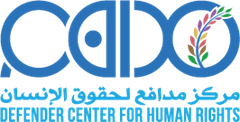
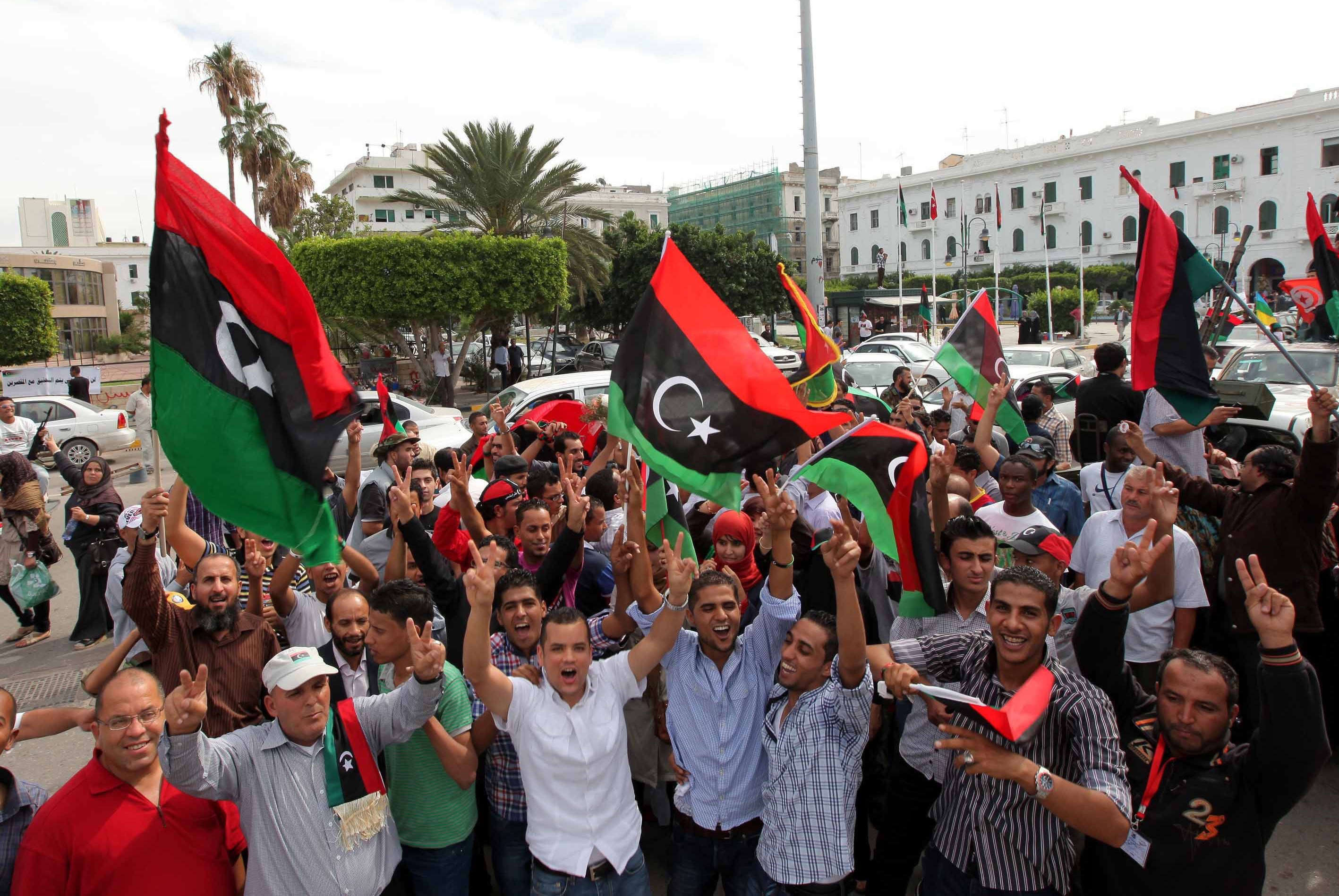
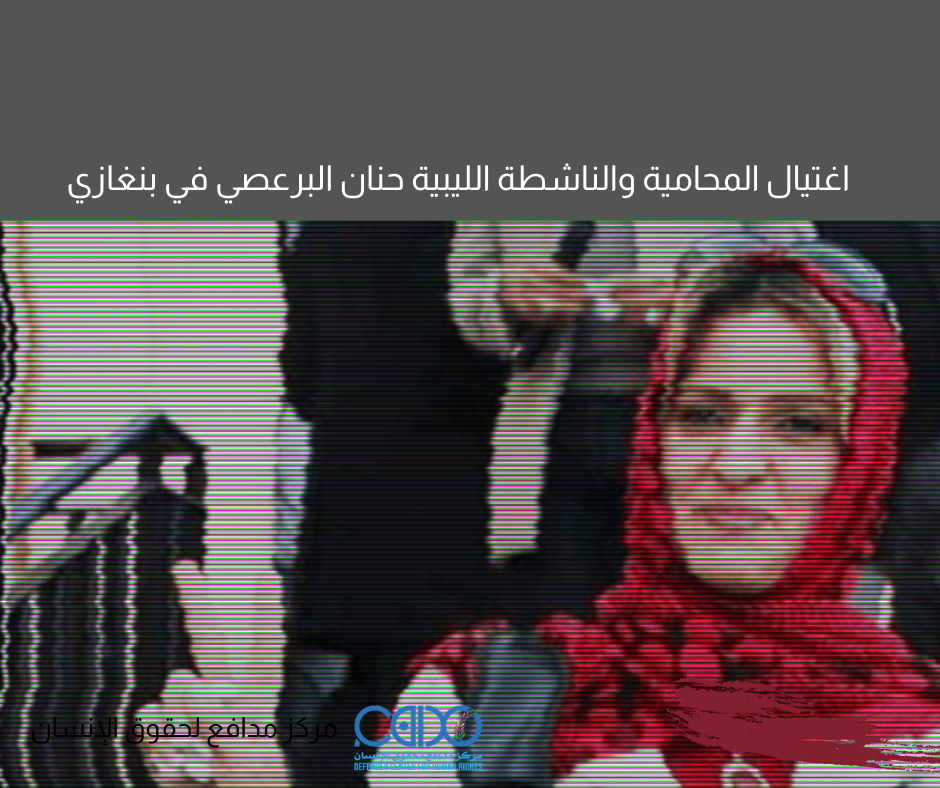
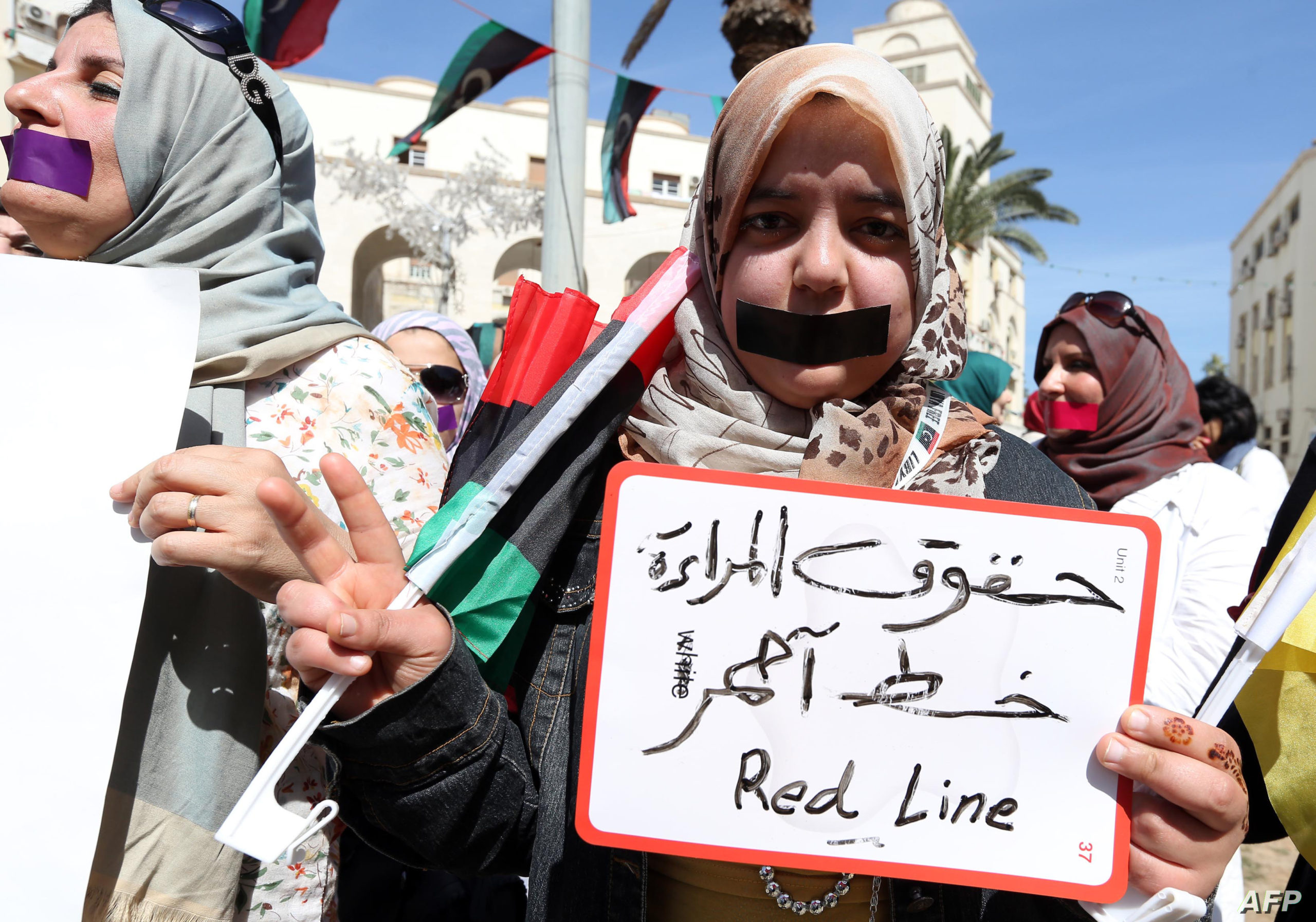

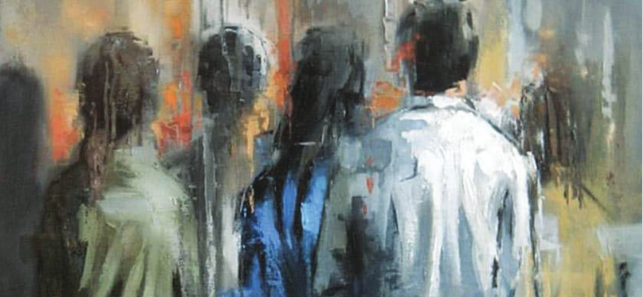


Leave a Reply
Want to join the discussion?Feel free to contribute!